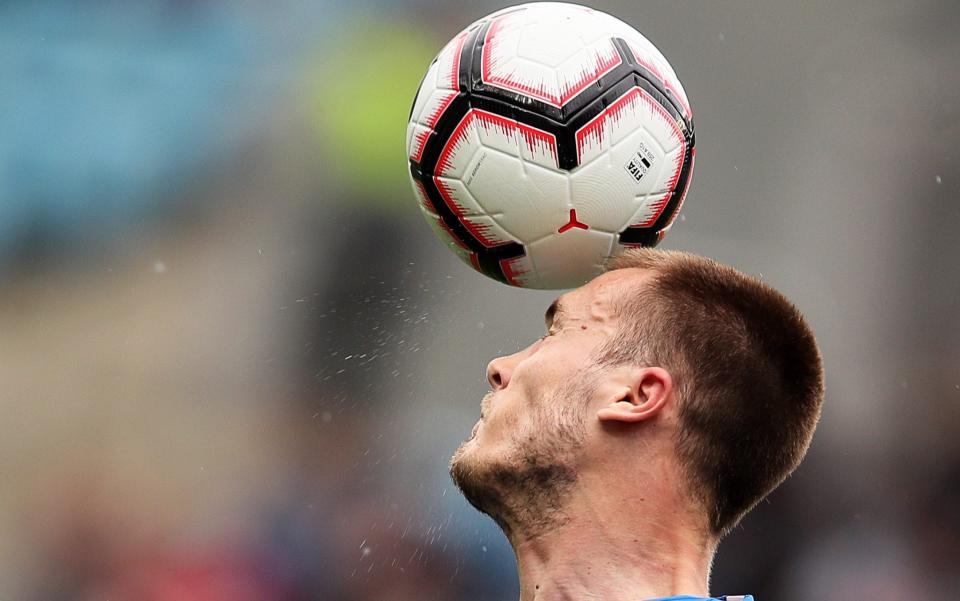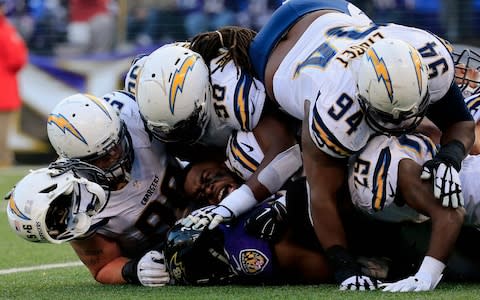NFL to help football's governing bodies prevent future brain damage as concussion subs are discussed

The NFL are ready to meet with football’s governing bodies to share their best practice in protecting players from future brain damage ahead of a meeting next week to discuss the potential introduction of concussion substitutes.
Research last month by the University of Glasgow revealed that former professional footballers are at a significantly increased risk of neurodegenerative disease and reported similar dementia levels to comparable past studies of NFL players.
The NFL have responded over recent years by trying to minimise the risk of head impacts with a wide range of rule changes and improvements to their concussion protocols. They also have a “concussion settlement” programme where claims totalling more than $700 million have so far been approved for families of affected former players.
Football is currently prevaricating over the introduction of concussion substitutes - so that head injuries can be assessed off-field for at least 10 minutes - and are also facing calls both to ban heading among its youngest players and limit heading in training.
Its rule-makers, the International Football Association Board, will discuss concussion substitutions next week and there is a growing hope that they will be introduced in time for either Euro 2020 or next season.

Dr Allen Sills, the chief medical officer at the NFL, explained how matches are studied to inform progress which resulted in a 29 per cent decrease last year in concussions. “There has been tremendous progress but by no means have we solved the problem,” Sills told the Telegraph. “We are very eager to share what we have learnt and what we have been doing with other sporting leagues and codes around the world.”
Changes have included how the helmet is used during tackles, kick-off formations, restrictions on certain tackles and blocks as well as training times. “We do not need to wait for studies or data to determine whether banging your head against something is a good idea,” said Dr Sills.
“The best treatment for any condition is prevention. In our case, prevention or reduction of avoidable head contact. I think most of us are pretty settled on that point. The challenge is to figure how we can reduce the incidence of head contact and mitigate those forces wherever possible.”

Dr Willie Stewart, the author of the Glasgow study, wants football to adopt this philosophy following his research which showed that footballers are 3.5 times more likely to die of dementia or neurodegenerative disease. A comparable study among NFL players in 2012 found that figure to be less at around three times more likely.
Of the NFL’s progress, Dr Stewart said: “A lot of people will say they are still not doing enough but they are doing a lot. The rules of the games are changing. They have changed training. They are not waiting for decades of evidence. They are saying, ‘We are making changes now’.”
As well as concussion substitutes, the new handball law could also be clarified by IFAB following the controversial disallowing of goals for Manchester City and Wolverhampton Wanderers this season.
IFAB ruled in March that handballs that led to goals would no longer have to be deliberate, effectively outlawing those scored following a touch off any attacking player’s arm or hand during the build-up. But the law change has been heavily criticised and one solution could be for the accidental handball law to apply only to the goalscorer.

